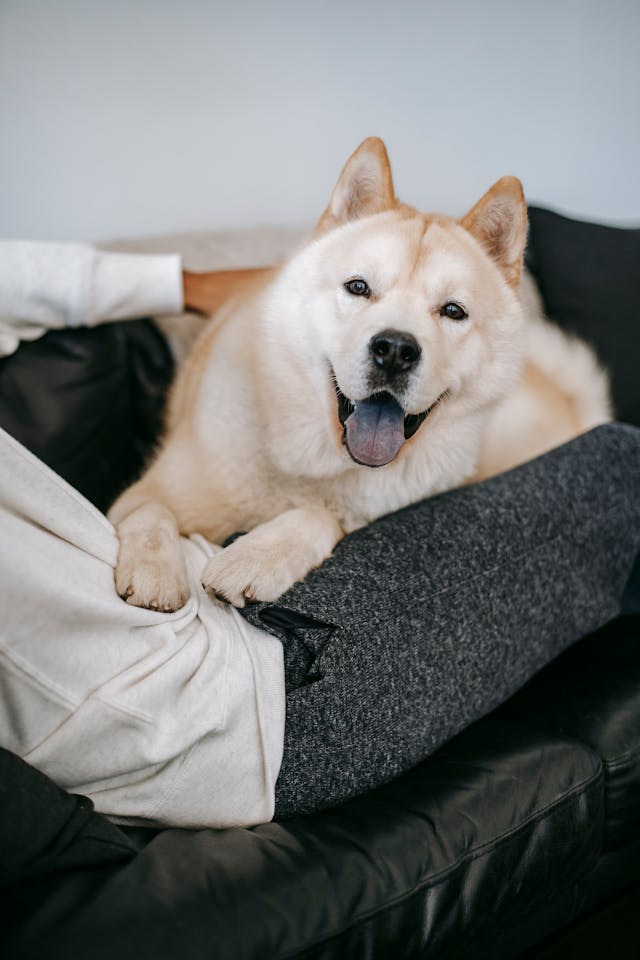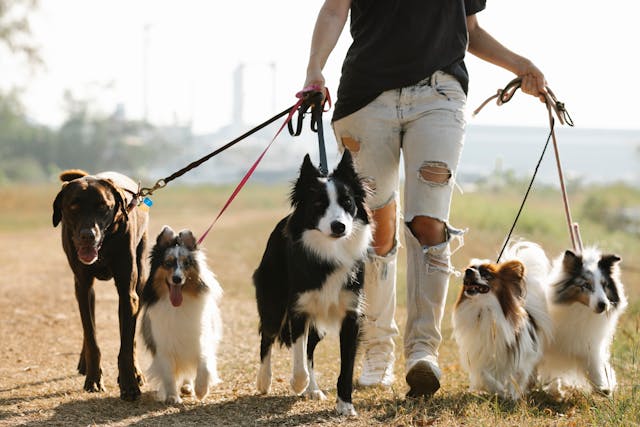Here we delve far further into dog longevity! You might have wondered, like many other dog lovers, what makes some dog breeds so amazing and robust. This extensive study will give the breeds known for their exceptional longevity coupled with the numbers supporting those lifespans. The mysteries of the lengthy lives of some dogs—from the smallest lapdogs to the largest type giants—will not be solved with a tail-wagging conclusion.
Few Things That Could Shorten a Dog’s Life
Genetics: Much like people can, dogs can inherit a number of genetic predispositions that can impact their lifespan and general health. Longer lifespan breeds are those with established lines and moral breeding methods, which reduces inherited health issues.
Dog lifespan is highly impacted by its environment. Things like enough housing, good food, regular exercise, and clean water affect a dog’s general health and well-being.
Food: A balanced diet strong in nutrients greatly extends the life of a dog. Good dog food catered to their unique nutritional needs can promote general health, avoid obesity, and maintain muscular mass.
Dogs need frequent exercise for both their mental and physical wellness. Apart from keeping dogs mentally occupied, playtime, walks, and interactive toys also strengthen their bonds with their owners and help prevent obesity.
Healthcare: Routine veterinarian examinations, vaccines, and preventative care are necessary for early identification and treatment of health concerns. Dog owners that take an active role in their pets’ medical treatment can ensure their canines enjoy longer, healthier lives.
Let’s look at the breeds known for having extraordinarily long lifespans now that we’ve looked at the factors affecting a dog’s life expectancy.

Big Lives in Small Dog Breeds
Contrary to popular belief, smaller dog breeds can sometimes outlive their larger cousins. Their shorter stature could be contributing to their longer life expectancy and reduced prevalence of diseases. Remarkably long lives are known to few small breeds:
1. Chihuahuas: Gregarious little dogs, they often live 14 to 20 years. They live longer because of their small size and relatively low occurrence of inherited diseases.
2. Dachshund: Known to reach ages of 12 and 16, Dachshunds are distinguished by their longer bodies and lively personality. Their particular shape raises their chance of back problems, hence regular exercise and appropriate care are crucial to their health.
3. Pomeranian: Despite their fluffy appearance, Pomeranians are robust little dogs that, with the correct care, can live up to 12 or 16 years old. Grooming and dental treatment on a regular basis ensures their welfare and future health.
4. Toy Poodle: Usually living to be 12 to 15 years old, these endearing, astute dogs. They shed little and are loved by families seeking a low-maintenance friend.
5. Miniature Schnauzer: Usually growing to be 12 to 15 years old, these cute dogs are identified by their distinctive eyebrows and beard. Maintaining their best health requires regular exercise and grooming.

Larger Breed
There are some notable exceptions to the general rule that says larger dog breeds often have shorter lives than smaller ones. A small number of large breeds surpass expectations in that they live remarkably lengthy lives:
1. Australian Shephards Usually living to be 12 to 15 years old, these canines are quite intelligent. Their endless energy demands ongoing mental and physical activities to provide a happy and healthy life.
2. Labrador Retriever: One of the most popular dog breeds worldwide, labrador retrievers are renowned for their commitment and loyalty. With the proper care, they might live for ten to fourteen years on average; nevertheless, as they age, they may become more prone to obesity and musculoskeletal issues.
3. Golden Retriever: These dogs may live up to 12 years old and are known for their composed and intelligent manner. These social dogs, while content and healthy, will need frequent exercise and mental stimulation.
4. The Great Dane: This is a courteous giant that lives an average of seven to ten years despite its massive size. Their particular needs are for a balanced diet, regular medical care, and perhaps joint and bloating problems.
Lifetime Optimal Health Secret of Mixed Breeds?
While mixed breed dogs, or mutts, can inherit a larger genetic pool that may extend their lives, purebred dogs occasionally have well studied health issues unique to their breed. Mixed-breed dogs have excellent chances of leading long, healthy lives because of their frequently reduced risk of health problems particular to their breed.

Proven Health Tips to Make Your Dog Live Longer
Have your dog checked up by a veterinarian once a year to monitor their general health and spot any issues early on. Any breed of dog can have its life purposefully prolonged by its owner. These important advices might help your animal friend live longer:
Well Balanced Diet: Feed your dog top-notch food that meets all of its unique nutritional needs. Give stop eating too much and manage your weight to prevent obesity, which can shorten life.
Daily workout: Make sure your dog gets daily workout to maintain a healthy weight, develop muscles, and stimulate their mind. Try to get your dog in between thirty and sixty minutes of exercise each day, depending on age, breed, and level of energy.
Mental stimulation: There are never enough training sessions, intriguing toys, or puzzle games for your dog. For his physical and mental well-being, your dog must exercise.
Preventative Care: Maintain current immunizations, tick and flea prevention, and heartworm medicine to protect your dog from preventable diseases.
Conclusion
Given all other factors being equal, size, heredity, and general health care all affect a dog breed’s lifetime. Though smaller breeds often live longer, every dog is unique and their level of care has a big impact on how long they live. If your dog—a Great Dane or Chihuahua—gets the right care, they can enjoy a long, happy life. As such, relish every moment you spend with your animal friend!



